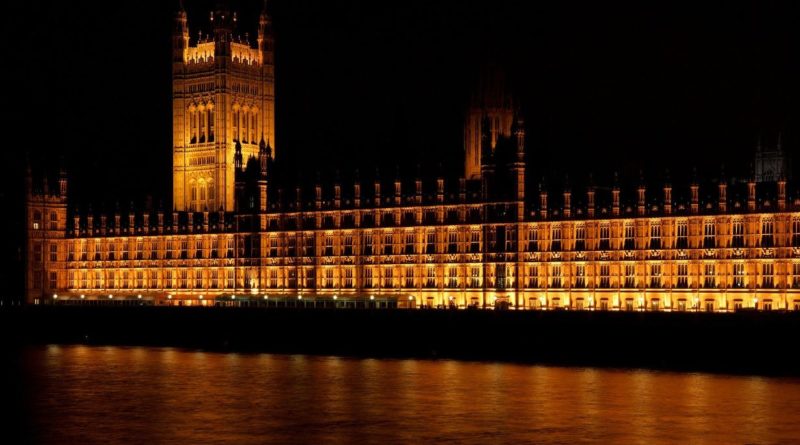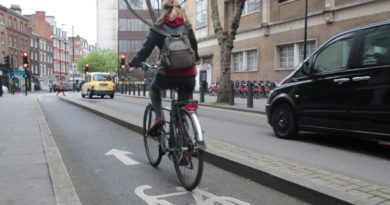Analysis: How UK political parties score on active travel policy
The election campaign is now running full steam in the UK with manifesto pledges largely out in the wild. With the bicycle industry battling hard to create new customers, active travel policy is a key area to watch for our business; after all, the main barrier to entry is safety on the roads.
Green Party
The obvious place to start seems to be the Green Party, a political organisation that has promised to throw the same amount (£100 billion) at the climate change issue annually as the Liberal Democrats have pledged over a five year period.
Unsurprisingly, some of the key manifesto policies focus on transport and a central pledge to curb emissions to net zero by the end of the next decade. It is, compared to others, the most radical position on what is considered to be a crucial issue not just for the UK, but for the wider world.
A key pledge is to transform the economy via a carbon tax that will apply to the use of all petrol and diesel, but that’s not the end of the plan by a long shot; petrol and diesel cars are plotted to be phased out entirely by 2030.
That will have a significant knock on effect for electric vehicles and, most importantly for the bike trade, cycling.
The Greens argue that current low interest rates charged on Government borrowing will deliver an “unparalleled opportunity for public investment” and from that we can expect infrastructure shifts.
So, the headline we’ve been waiting for: The Greens are pledging to spend £2.5 billion safe on cycle routes, paid for in part by scrapping the costly HS2 project, calculated by CI.N to have a cost per head of £848.48 to the population (and that’s the lower estimate of £56 billion). A more recent estimate placed the figure nearer £100 billion+.
In contrast, cycling currently languishes at just £1.90 a head on average, by the latest estimate. In London things are better at an estimated £6.70, but hardly groundbreaking.
For further context of just how far £2.5 billion might go, a kilometre of cycle track, according to this Government analysis, comes in at £1.45 million for largely segregated infrastructure, as laid on Greater Manchester’s busiest commuter corridor – the Wilmslow/Oxford Road to East Dibbury passage. Costings can go as low as £240,000 per kilometre too.
£2.5 billion therefore could reasonably be calculated to be worth between 10,416 and 1,724 kilometres of cycle track laid.
An active travel policy revolution.
Liberal Democrats
Seemingly the next in line on ‘green’ policies is the Liberal Democrats which has pledged to generate 80% of electricity from renewables by 2030 and tax frequent flyers.
Encouragingly, the Liberal Democrat candidate for Dumfriesshire John Ferry is seen taking to his bike and cycling his local countryside in his campaign video, so there are enthusiasts on board.
Ferry is, by an account handed to CI.N, a long-term volunteer at bike events and a youth leader for the Peebles Cycling Club.
Leadership does however come from the top and the manifesto has a few points of note, specifically the line “Placing a far higher priority on encouraging walking and cycling – the healthiest forms of transport.”
It is said that infrastructure projects would be asses by an independent body with cost to benefit ratio heavily factored in. Cycling, with its up to 35:1 ratio may well do well, then.
Though no exact figure is pledged, active travel policy is touted to be worth 10% of the transport budget.
Funding sources for the Lib Dems include a projected £1.5 billion a year gain from legalising and taxing cannabis, a 1p addition to income tax, a return to 20% corporation tax and a forecast “remain bonus” of £64 billion by carrying out a pledge to stay in the EU.
Labour Party
We were given an early insight into the Labour mindset on active travel via Lilian Greenwood in this Politics Home article.
Greenwood is wise to identify an obvious area for improvement, stating: “More than 60% of journeys between one and two miles are made by motor vehicle and fewer than 2% by bike.”
But with such great emphasis on nationalising the railways, does the manifesto echo Greenwood’s sentiment on cycling?
Again, there is a by default option for increasing cycling in the pledge to end “new sales” of combustion engine vehicles by 2030. There is also an eye-catching pledge to shoot for zero deaths and serious injuries on the roads, but detail is not fully fleshed out on this.
Quoting the manifesto, we have the following: “We will increase the funding available for cycling and walking. We will bring together transport and land-use planning to create towns and cities in which walking and cycling are the best choice: safe, accessible, healthy, efficient, economical and pollution free. We will help children’s health and well-being by ensuring street designs provide freedom for physically active outdoor play and by introducing measures to ensure the zones around our schools are safer, with cleaner air.”
As far as exact figures go, we’ve not yet stumbled upon much more than a late 2017 pledge by Andy Mcdonald to meet the £10 a head widely touted as a first step toward meaningful change.
Conservative
As it stands it appears Brexit is the central theme of the Conservative manifesto, but some (not all) will credit Boris for getting the ball rolling with a cycling movement in London. Though the hire bikes have often been dubbed ‘Boris Bikes’, it was indeed his predecessor Ken Livingston who first mooted the introduction.
So far we do know that Boris’ Transport Secretary Grant Schapps appears to have a warm view on cycling, certainly more so than his cyclist dooring predecessor Chris Grayling. His understudy, Chris Heaton-Harris, appears to hold similar views and is tasked with developing cycling policy.
At the time of Schapps appointment both the APPCG and Cycling UK pointed out the Minister has previously stated he wants to see cycling as a normal activity for all.
A manifesto isn’t due until Sunday, making the projected leaders among the slowest to publish their concrete stances. The party did publish a mock Labour Party manifesto, however.
We can only therefore scrape the press and the Tory website for indications, as well as gauge the frequent use of the soundbite “war on the motorist” to mean fuel duty may be frozen again.
On that note, a Parliamentary question on the matter placed that fuel duty freeze as being worth £8 billion annually as a subsidy to motoring and £46 billion since 2010. Using the methodology above, that’s worth up to 5,517 kilometres of cycle track annually.
Coming up top in searches is a pdf appearing to show tentative transport policy.
Titled “Transport Green Prospectus”, the document refers to electric and hybrid vehicles, but a further reading narrows that definition. Investment incentives for electricity firms will be on offer to help develop a nationwide charging network, but only for cars.
The only mention CI.N has found thus far are the following paragraphs
- “We will review the way our roads are managed to ensure the concerns of cyclists are given a higher priority, with the goal of making cycling a safer and more attractive transport option.”
- “Councils and voluntary groups will be able to apply for available funding to support the green travel initiatives that work best for their communities, whether those are walking schemes, cycle priority, real-time information or smarter ticketing for bus services or other measures that make greener transport options more attractive or make it easier for people to cut down on work-related travel.”
Under a sub header for providing an alternative to short journeys you might expect cycling to get a mention, but this segment instead focuses on fast broadband rollout making it easier for people to work remotely.
Brexit Party
An update is expected today, though leader Nigel Farage has famously said he is opposed to producing a traditional manifesto.



